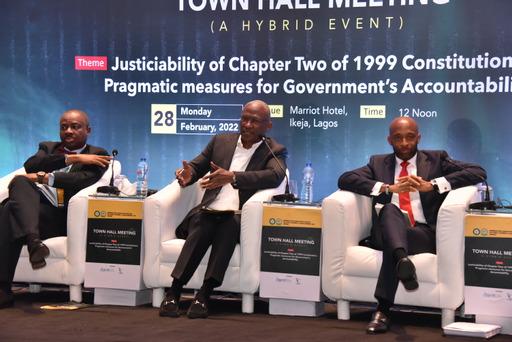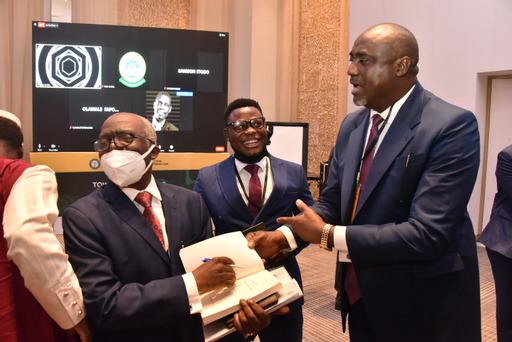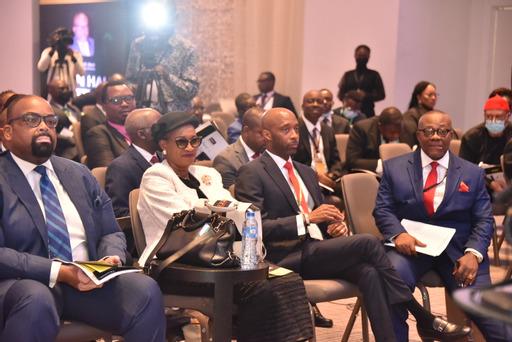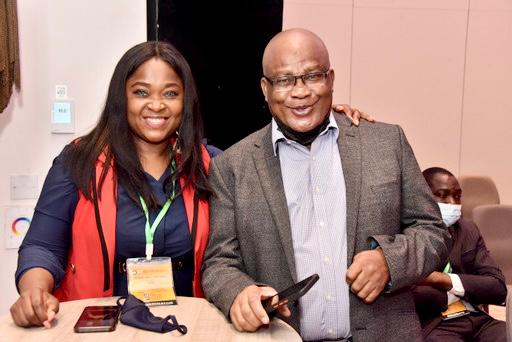According to NEWSWIRE Law & Events Magazine correspondent, the opening plenary session at the Town Hall Meeting of the Nigerian Bar Association’s Section on Public Interest and Development Law, which was held at the prestigious Marriott Hotel Ikeja, Lagos took direct aim at the Chapter Two non-justiciability conundrum from a short and long term points of view. Moderated by Kayode Akintemi, a journalist and public affairs analyst, the panel comprised of the aforementioned Femi Falana SAN; Hon. Justice Onuoha Ogwe, Chief Judge of Abia State; The Rt. Hon. Onofiok Luke, Chairman of the House of Representatives Committee on the Judiciary; Suleiman Usman SAN, Attorney-General of Sokoto State; Emmanuel Okorodudu, Head, Democracy and Good Governance at the ECOWAS Commission in Abuja; and Kolawole Oluwadare, Deputy Director at SERAP (the Socio-Economic Rights and Accountability Project).
There can be no judicial activism, as being canvassed by many stakeholders in the Nigerian legal space, said the Abia State CJ in response to the notion that the Nigeria judiciary has been too readily accepting of the non-justiciability palliative and the paralysis it has brought to the courts of record, if there are no cases bordering on the violation of economic rights before the courts. Justice Ogwe therefore called for a concerted effort by members of the Bar, as well as the human rights community and CSOs to be more forthcoming in bringing well-documented cases before the courts for redress.
On what the national legislature was doing to activate economic rights beyond the statute books, Hon. Luke (a former speaker of the Akwa Ibom State House of Assembly) stated that there is no lack of legislation in the country as to the sacred obligation of government to uphold and protect the human and economic rights of citizens; what was lacking, he said, was the political will to implement and enforce these statutes, and the people’s general docility in the face of violations. In the end, Hon. Luke said, mass action by and on behalf of the people would be needed to bring the reality of their condition home to their leaders.
Refuting the notion that the executive – especially at sub-national level – has not akways stepped up to the plate as far as activating the provisions of Chapter Two is concerned, Usman, the Sokoto State AG, cited a number of social and economic intervention programmes in his state (notably the Sokoto State Right to Education Law). Justiciability or not, he said, the onus lies on leaders at all strata to prioritise the people’s welfare and security above all else – without being compelled to do so.
The work of civil society groups such as SERAP, and multinational/intergovernmental bodies such as ECOWAS in driving the peoples human and economic rights was also well articulated by the duo of Oluwadare and Okorodudu, respectively.
The fact that the NBA has more territorial spread – with its 125 branches nationwide – than any NGO currently operating in Nigeria, Falana said in his closing remarks, makes the Association a potentially formidable force in activating the provision of Chapter Two. To this end, he called for a human/economic rights desk at each of those 125 Bar branches to keep a vigilant eye on infractions with a view to bringing them to light and ensuring redress.
Like the opening panel discourse, the second – also moderated by Kayode Akintemi – comprised of an equally stellar cast of discussants, such as Anthony Ojukwu SAN, executive secretary of the National Human Rights Commission (who presented the lead speech); the renowned economist Prof. Pat Utomi of the Lagos Business School; Yemi Adamolekun, executive director, Enough is Enough (EiE), a civil society organization; Cecilia Aransiola of Amnesty International; and Soji Apampa of Integrity International, another civil society organization. Two other panelists, Olawale Fapohunda SAN, Attorney-General of Ekiti State; and Samson Itodo of Yiaga Africa, yet another civil society organization, participated virtually.
NEWSWIRE’s correspondent at the event reports that the discouse followed from Mr. Ojukwu’s lead presentation, which outlined the government’s obligation to the citizen – which is to Respect their rights at all times; Protect them from physical, psychological and economic harm; and to Fulfill their basic needs. In his opening salvo, Prof. Utomi also outlined the role of CSOs, the human rights commission and the NBA in particular, namely, to erect the socio-political boundaries that ensure accountability in public life. But this, he added, must be complemented by an activist judiciary. Like Hon. Luke in the previous session, Prof. Utomi also called for a mass mobilisation, especially in the form of voter education.
Expanding on the theme of an activist judiciary and the urgent need for one to meet the challenge of our present circumstances, Samson Itodo defined it to mean a situation in which Judges and Justices expand their interpretation of the law in a way that serves the interests of justice and fairness. As we approach the 2023 elections (and enter the season of empty promises by aspirants of every hue and stripe) who have zero regard for the people and their needs, Itodo called for the rule of law to be a political issue in the next election cycle.
The paucity of lawyers devoted to public interest litigation, and the seeming apathy of legal practitioners in electoral politics in Nigeria, are a source of concern for Wale Fapohunda SAN, the Ekiti State AG, who called for a critical mass of his colleagues and other professionals to make a quantum leap into these areas in order to have a seat at the table of decision-making and drive the better political and governance paradigm that we seek. He cited a few examples of lawyers and the intelligentsia who have made this leap, such as Govs. Aminu Tambuwal, Nyesom Wike, Babagana Zulum and Kayode Fayemi of Sokoto, Rivers, Borno and Ekiti States respectively. Fapohunda also called on Judges/Justices to be better informed on the imperative of judicial activism and how it helps to mitigate the so-called non-justiciability of Chapter 2 of the Nigerian Constitution.
-Advertisement-
Grab our latest Magazine, "Chief Wole Olanipekun, CFR, SAN, A man of wide horizons and deep intentions". Get your order fast and stress free.
For more details about Newswire Law&Events Magazine, kindly reach out to us on 08039218044, 09070309355. Email: newswiremagazine@yahoo.co.uk. You will be glad you did
Download E-MagazineDo you want to be heard, your events covered, your articles published, or need to advertise your products and services on our Blog and Magazine, reach out to us at Newswire Law and Events, you will be glad you did. For more details about our services, please call: 08039218044, 09070309355. Email: newswiremagazine@yahoo.co.uk











